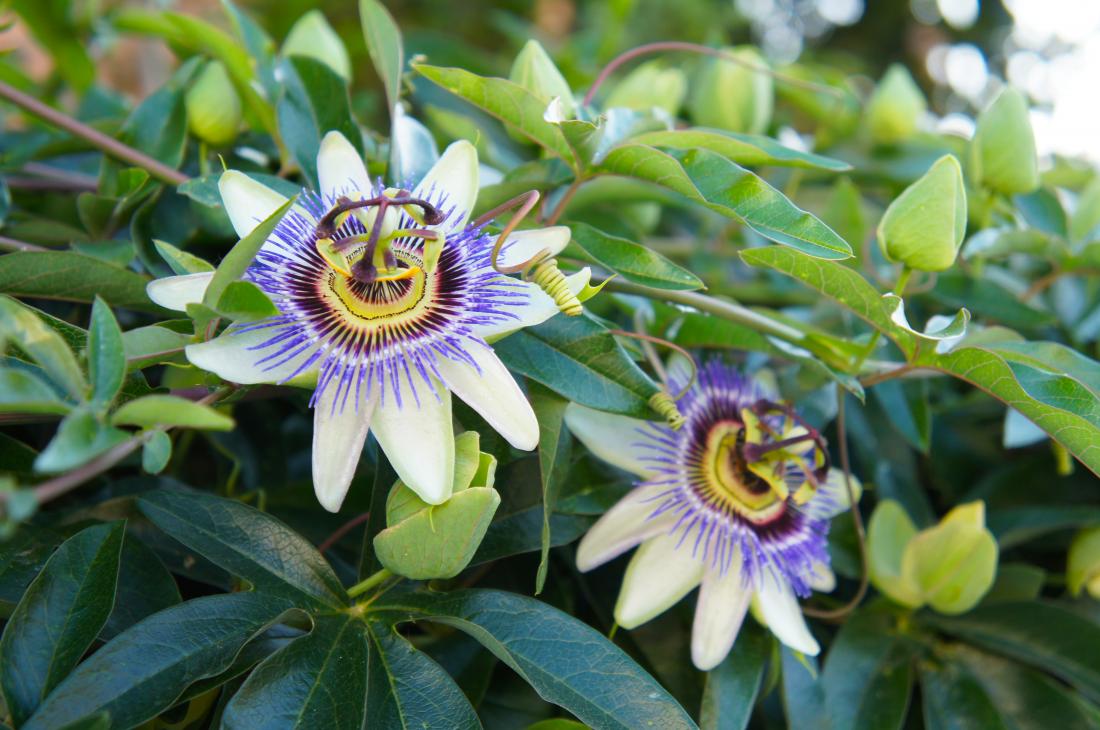In this article, learn about the possible benefits of passionflower supplements, as well as what the research says about its effectiveness.
What is passionflower?

Passionflower supplements are available in some health food stores.
Passionflower grows throughout South America and some parts of the southern United States. It is part of the Passiflora family, which also includes passion fruit.
People have used one variety of passionflower, Passiflora incarnata (P. incarnata), since the 16th century for medicinal purposes.
Some researchers believe that passionflower supplements may help treat anxiety, insomnia, and certain forms of pain because it may increase levels of gamma-aminobutyric acid (GABA), a chemical the brain makes to help regulate mood.
GABA is an inhibitory neurotransmitter — it counters neurotransmitters that cause excitement, and so it may have a calming effect.
Passionflower contains GABA. However, consuming GABA in this way does not necessarily mean that the acid will reach the brain.
Traditionally, scientists believed that GABA could not cross the blood-brain barrier, but some studies have had contradictory results.
Passionflower for anxiety
In general, there is good evidence to suggest that P. incarnata helps relieve anxiety symptoms.
Several clinical studies show that passionflower has anxiety-calming (anxiolytic) effects. In one clinical trial, researchers found that P. incarnata had results similar to antianxiety medication in mice. Two other clinical trials in animal models found that it had sedative effects.
A 2016 clinical trial found that passionflower decreased anxiety and improved memory in rats. These effects could be due to P. incarnata affecting GABA levels.
However, conclusions about the degree to which passionflower works vary from study to study.
One review found it to have a significant sedative and calming effect. Other researchers recommend it as an add-on to traditional anxiety treatments.
Passionflower for sleep
Some evidence indicates that passionflower helps people sleep. Research from 2017 in mice suggests that P. incarnata can have a positive effect on sleep patterns.
One study in rats found that P. incarnata significantly increased slow-wave (deep) sleep, reduced rapid eye movement sleep, and helped the rats fall asleep more quickly.
Another animal study found that passionflower reduced the time it took to fall asleep and increased the duration of sleep.
Determining the effectiveness and identifying side effects in humans will require further research.
Other possible benefits
Passionflower supplements may have additional benefits, including:
Reducing menopause symptoms
In one study, participants experienced a significant reduction in symptoms, including headache, depression, insomnia, and anger, compared to a control group, after taking P. incarnata for 3–6 weeks.
Epilepsy
Results of a study from 2007 indicate that taking pasipay, a mixture including P. incarnata, increased the time between seizures and their durations.
With limited evidence available, determining the effectiveness of passionflower for seizure management will require more research.
Anti-inflammatory effects
Some findings indicate that passionflower has anti-inflammatory effects, but more research is necessary to determine its uses and effectiveness.
Side effects

Passionflower may cause drowsiness.
There are few documented side effects of passionflower, making likely to be a low-risk supplement to a healthful routine.
In some instances, passionflower may cause:
- drowsiness
- dizziness
- confusion
Pregnant women should speak to their doctors before taking passionflower. Also, there is insufficient evidence to support its use in children.
The United States Food and Drug Administration (FDA) regard P. incarnata as safe.
Takeaway
Some evidence suggests that one type of passionflower, P. incarnata may help reduce anxiety and improve sleep.
It may also have other benefits, including reducing menopause and epilepsy symptoms.
People can use passionflower supplements with other anxiety treatments, but always speak with a doctor about possible interactions.
Passionflower supplements are available in some health food stores and online.
